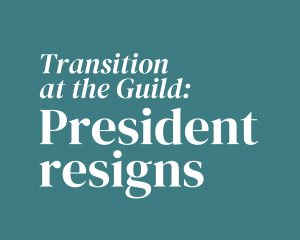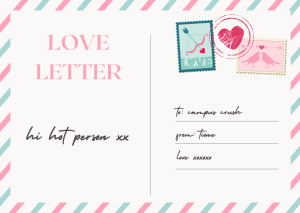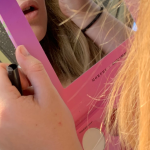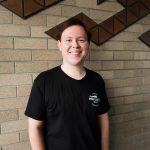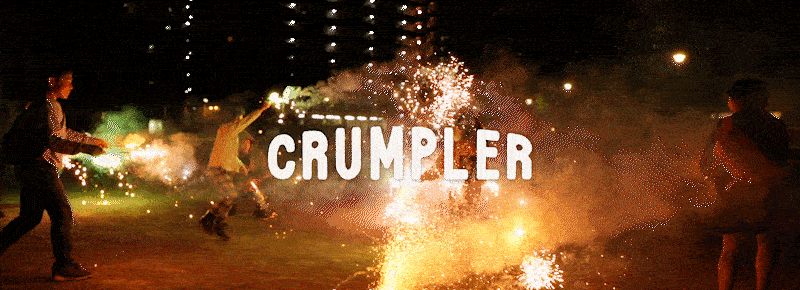
After watching the (belated) 2020 Olympic & Paralympic Summer Games in Tokyo earlier this year, it was hard to miss the sheer number of Australian (and QUT Athletes) making an impression on the world’s greatest stage.
One such swimmer and Olympian is Jack McLoughlin, who won a Silver Medal in the men’s 400 Metre Freestyle in Tokyo. He is one of the many QUT elite athletes who not only highlighted our uni’s elite athlete program, but the outstanding achievements young Aussie athletes are making while also managing to study!
I chatted with Jack about his training, post-Olympics reflections, and how he manages a healthy work, life and study balance in one of the most competitive sports in Australia – let alone the world.
Here are some of the key lessons I learned from talking to Jack about living a competitive lifestyle while juggling university and career aspirations.
Find Your Balance:
After talking to Jack, the first thing I thought was, “damn, this is a person who has truly mastered the art of time management.” He refers to this skill as a triangle, balancing training, study and social life equally.
It’s not something I personally considered when it came to time management and performing at my best academically; picturing it as learning the art of balance has been quite eye-opening and a fresh new perspective on approaching my study, career goals, and social life.
Pick Your Battles
Another lesson I learned from Jack was that even elite athletes pick their battles. In Jack’s case, it more specifically referred to prioritising medaling in the 400m free rather than putting all his eggs in one basket with 1500m freestyles races.
It’s not a matter of whether or not he could do well in 1500m – he knows he probably could, but was selective and strategic about balancing and putting the right amount of time, effort, and training into a race where he knew for sure he could get a medal.
I relate to this a lot but in a more academic than competitive sense. I’m one of those people who often doesn’t know when to say no to projects and tries to put 100% into every assessment. If I picked my battles better, I’d be a lot prouder of my results in the future.
Plan Your Rest
Something that stood out a lot to me was how Jack talked about rest being an integral part of his training as an athlete and a factor when coming back from the Olympics. It wasn’t just jumping straight back into study or training again.
We probably can’t expect the uni to start granting us extensions for rest days, but we can schedule time for it ourselves. I know, easier said than done.
I don’t know about you, but I think it’s safe to assume the average, non-Olympic, student probably spends a lot of sleepless nights studying, working, and crashing after exams or assessments. For Jack, this just isn’t the case; he has a regimen for every facet of his life and planning essential rest is a big part of that routine.
Chatting to Jack was a fantastic experience; these are just a few of the anecdotes that stood out to me. Jack is not only an outstanding athlete but also a humble and inspiring person when it comes to life and study.
The Glass team and I extend a massive congratulations to Jack and all our QUT Athletes, who we were lucky enough to have represented Australia and our University on a global stage.
If you’d like to find out more specific reflections and insights from Jack, check out the full interview transcript.
____________________________________
FULL INTERVIEW TRANSCRIPT
CS: How long have you been studying at QUT for now in Engineering and what field do you specialise in? Did you always know you wanted to do engineering in that area or was it something you needed to figure out?
JM: “I study a combination of civil and structural – I’m leaning more towards the construction industry for future jobs so I’ve started doing a combination of both.
I’ve been studying since 2014, so quite a while. I just do part-time, with swimming which takes up about 35-40 hours of intense training a week, so it’s pretty much a full-time job.
To do full time studying and swimming, the people who do that are phenomenal, I don’t know how they do it. But for me, because I can be away for so long, the Olympics I was away for 7 weeks, when all those clash together it can be super hard to do. So, I’ve just been doing part-time and am slowly ticking away to the end of it now, which is exciting.
During school I didn’t really enjoy English and those kinds of subjects. The things I did enjoy was physics, chemistry, and number heavy subjects. A family friend suggested that I should look into engineering and I became passionate about how broad the degree was and allows me to venture out to different areas later on in life.”
CS: From what I’ve read the Elite Athlete Program can be quite demanding how have you been managing balancing the program requirements, study, (potentially work/internships) and going to compete, in those times how did the Uni support you?
JM: “For engineering you need to complete 60 days of WIL, so I’m currently looking at a few firms to start working in an undergrad position. It probably comes at a good time as I haven’t personally done any yet, which I need to graduate and I’m having a pretty big break from swimming at the moment.
There’s definitely been stints where I’m home but in-between training and studying, it’s been super tough to balance those work experience opportunities.
I always call myself a triangle of balancing study, swimming, and my friends and social life. It’s pretty important to me to also make sure I’m enjoying life and not just bogged down in training. So, it’s been pretty hard to try fit work in at the same time.
The elite athlete program works pretty closely with the unit coordinators and faculties, so having the program behind me helps me communicate with unit coordinators and they’ll help me out knowing what my commitments are.
I’m personally very organized when it comes to assignments and due dates, cause’ I have to be. I can’t be a last-minute person or a student that submits at 11:50pm especially when I have training at 5am the next morning. I always make sure that I’m submitting well before the due date.
But when it comes to exams, they’re the tough ones; in engineering, we do get quite a lot of those. For example, I had two exams that were the same day as my 400m and 800m freestyle Olympic trials so I needed to defer those. Which is the usual case, but then my third examination period was the same date as my 400m and 800m Freestyle races at the Olympics.
I then had to organize a date to do a particular in-house exam at a different time with my unit coordinators. Thankfully, most of them are really helpful, but by the same token, I do try really hard and make sure I do the best possible thing with them and communicate to them upfront and honestly that I want to be diligent and do well rather than achieve the bare minimum.
I’ve been fairly diligent since high school thanks to my training regime, I’d get to training at quarter to 5 in the morning, train till 7:30 am, get ready for the day then go to school till 3pm. Then trained again at 4pm and do homework at 6:30. Doing it all over again the next day.
I don’t really have a lot of time in those periods to be doing work. If something is due on a Wednesday, I have to make sure to finish it by a Sunday night for example.”
CS: The AIS has recently granted QUT a brand-new collaborative scholarship for skilled athletes like yourself, partly due to your and other QUT athletes’ amazing performances in Tokyo. How do grants and scholarships like this actually help students and what do you think this could mean for the future of QUT’s elite athlete program?
JM: “I think it’ll take a huge weight off students’ shoulders, like I said myself, I can’t work due to study and training. Being able have a scholarship that allows you to get by without having to work, means that people who have had to sacrifice their study or sport to work and survive will be able to train high level.
One thing people tend to not consider is how rest is big part of our training. You just need it sometimes and if you’re working 5 days a week with study and training there’s no way to be at your best without it. Having a scholarship like that is so helpful to young athletes, having something there is huge and was part of my success later on in life after receiving one when I was younger.”
CS: If QUT could change, add, or improve anything to the university support systems and Elite Athlete Program what would you recommend or like to see for either yourself or future athletes?
JM: “You’re trying to balance two sides here. At the end of the day, you don’t want to get a degree that’s worth half the effort or ‘half-done’. I don’t think QUT would want those who are elite athletes coming out with half the degree they could have earned.
You don’t want these students going into workplaces without the experience they need for industry. I think QUT has found a good balance and the unit coordinators are more than willing to bend over backwards to help their students.
My one suggestion as a swimmer would be, making sure students have more options and study periods, despite the degree, for students to study in summer to be able to bang out units and to keep the degree rolling, that’s coming from an engineering point of view of course.”
CS: You now have 400m freestyle medals from the Olympics, Commonwealth Games, and Pan Pacific Championships. Is it safe to say this is your preferred event? If so, has this changed from longer distance events like the 1500m?
JM: “When I first made my international debut at Rio [2016 Olympics] that was my plan of attack to be a 1500m swimmer. But it changed in 2018 when I had a huge improvement in my 400m and I was second behind Mack [Horton] at the Commonwealth games. Even though I had won the 1500m at both Commonwealth and Pan Pacific.
That was when we looked at the events and at the 1500s there were three European swimmers dominating the scene swimming – Grant Hackett type times. My plan was that I always wanted to medal at these Tokyo games and medaling in the 1500m was going to be very, very hard. So, we looked to the 400m and my time was really up there. So, there was kind of that risk of putting all my eggs in one basket. The 1500m is still my backup but a super tough event both in Australia (we’ve got like 4 or 5 top boys in the world) and internationally but I do enjoy it.”
CS: Mack Horton was a pretty high-profile scalp of yours at this year’s national trials. As the defending Olympic champion and Australia’s premier men’s distance swimmer over the last 5 or 10 years, was beating him a big confidence boost for you or were you confident your form would hold you in good stead?
JM: “Mack and I are really good friends and we always chat before and after swims. It wasn’t like a ‘oh yes I beat my arch nemesis kind of thing,’ we do joke about all that stuff and have a good laugh about it. For me I was confident in my abilities.
The 400m trials at nationals was ridiculous we had 4 boys in the top 6 in the world and they only take 2. Even Mack’s time, that he got 3rd with, would’ve gotten bronze at Tokyo. When I did get selected it was a confidence boost, I realised I’ve got to make sure I get this job done now.”
CS: Very few people have heard of Ahmed Hafnaoui before these Summer games. Had you factored him in as a threat prior to the final?
JM: “I did know that the Olympics always has outsiders, there are always people who make huge improvements. It’s hard especially in swimming, because in countries like Australia, the UK and the US, trials are so big and we always have to be at our best so you kind of know what to expect.
Smaller countries or teams don’t often have to compete against each other or be at their best to get selected. So, these athletes get a lot more time than us to properly rest.
We haven’t had an international meet in 2 years so I knew there was probably going to be someone who comes out. If we had had an international meet before these games, we may have seen him come out and recognise that this guy is really on the move. It’s hard judging it as a surprise when 12 months is a huge amount of time in swimming let alone 24 months.”
CS: You were unlucky to miss the 1500m final despite a really solid qualifying time. What were you thinking when you watched Bobby Finke’s last 50m?
JM: “I was more focused in the 400m so I was pretty happy with my time regardless, as it was more of a backup plan to make the team. It’s such a rich event in Australia’s history that I still want to take part if I’m capable. If I wasn’t focusing on the 400m I would’ve been gutted, otherwise I’m happy with my Silver.”
CS: Your teammate Mack Horton has been fairly outspoken in his objection to Sun Yang’s continued participation in international swimming. What did you think when you heard he would be banned from competing in Tokyo? Do you think the extenuating circumstances involved in his original positive test are mitigating, or should all positive tests be treated the same?
JM: “As someone who thinks what he did is despicable and as someone who is racing him, I did find the 8-year ban to be really harsh. I think that was a big statement against what he did.
For anyone who doesn’t know he, smashed a doping blood test with a hammer – due to not being happy with it. So yeah, it was a big, big no-no.
Even if he was concerned with how the test was carried out, with all of our tests we complete there’s areas in the forms where you can report what you weren’t happy about. If the panel thinks that it’s valid, they will scrap the test, no matter what happened. So, there was no real reason for him to do what he did.
We are meticulous with that stuff, when I look at a vial even if I see a speck of dirt in it, I request a new testing tube. Just flat out refusing is a no-no. We all agreed that he should be banned for something like that.”
CS: We see a lot of incredible Brissy Olympians transition from competing to training after they retire; you’ve mentioned your career aspirations earlier but do you have a desire or think there will be room to coach and train future Brisbane swimmers like yourself?
JM: “I have thought about it a lot and I am really passionate about swimming. I really do love to analyse numbers. Mack and I joke about it a lot because I can recite everyone times, how they swim, and what their splits are. Because of that everyone says, “oh you’d be great coach!”, but at the same time I really love Engineering. I know I can be successful and passionate about both so I might just get to a point where I get sick of or miss swimming, so I won’t put anything out of the woods just yet.”
